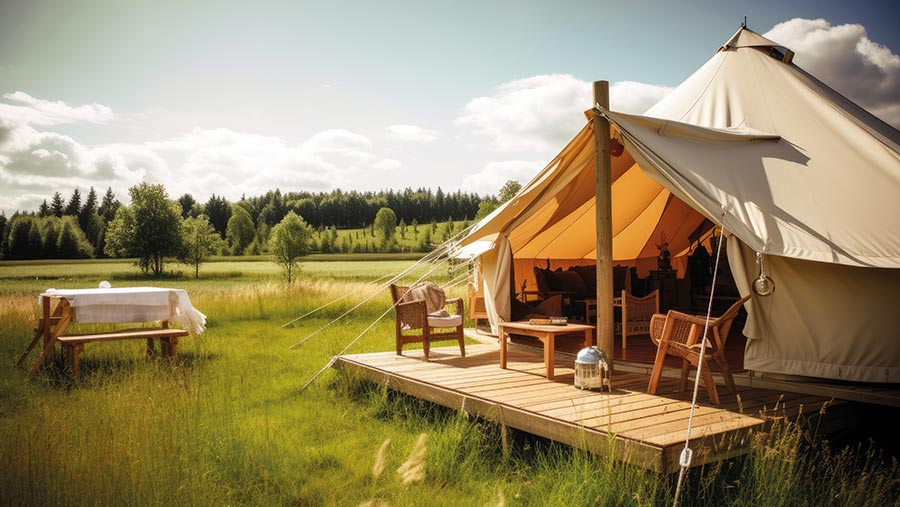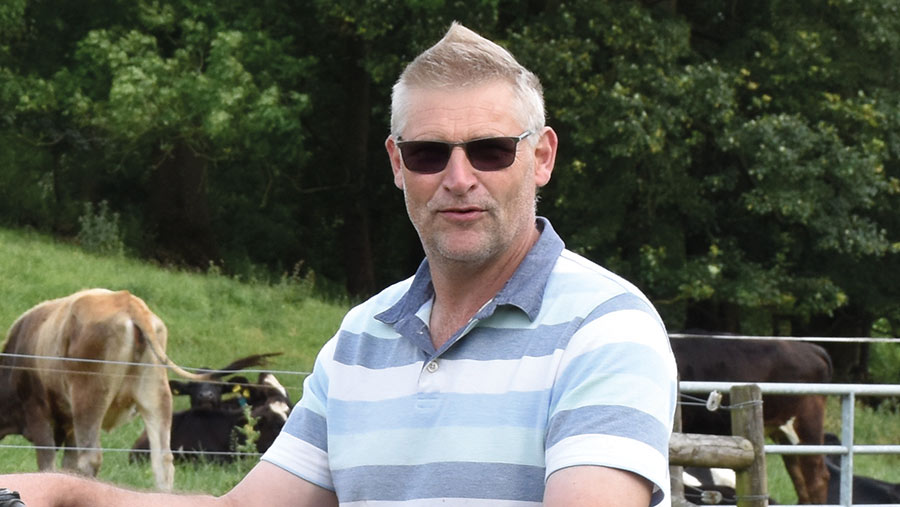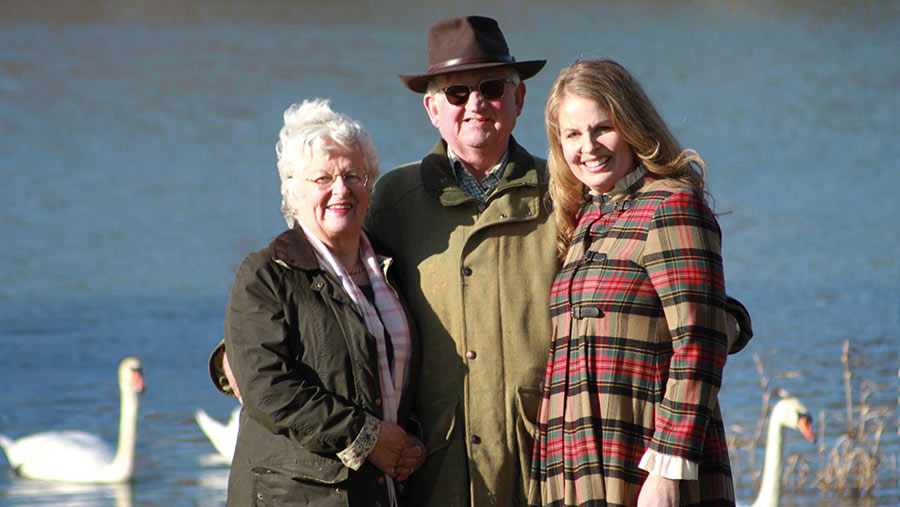Farm holiday providers need to stand out to succeed
 © Roman/Adobe Stock
© Roman/Adobe Stock Gone are the days when a farm could rent out a cottage with a jumble of furniture and charge for the privilege of holidaying there.
Today’s visitor demands high-end fixtures and fittings and luxuries ranging from hot tubs to pizza ovens, but they are willing to dig deep for that experience, according to beef and sheep farmer David Brown, a director of Farm Stay UK.
This not-for-profit co-operative of working farm accommodation providers was established 40 years ago, with Farmers Weekly among the founding partners.
Its research shows that holiday accommodation is a key source of revenue for UK farms. There are 460 properties listed on the Farm Stay website, of which 305 are working farms.
Glamping became listed on Farm Stay in 2013, when there was an average of 1,000 page views a year; interest is now up by nearly 12,000%.
While self-catering and glamping are the most popular searches, farmhouse B&B is having a renaissance – with a 29% increase in people looking for those stays in the past 12 months.

David Brown © David Brown
Stand out from the crowd
The market for holiday accommodation is a crowded one, so to generate an income and get a return on investment, providers need to stand out.
“A holiday is quite an expense for people so they want, and demand, better than they have at home,” Mr Brown says.
“Most providers are up to speed on this – there are very few left who fit out cheaply and let out cheaply.”
Some farms specialise in the “get away from it all” break – rural regions where mobile phone signals are patchy are well placed to provide this – and, although a niche market, it is a growing one.
Mr Brown says his own holiday accommodation in the Peak District would fall into this category if it were not for internal boosters.
“But when the guests get outside and there is no signal they never complain – they tell us that, after a while, they leave their phones in a cupboard and have a great holiday away from technology.”
More about Farm Stay
Farm Stay is a not-for-profit farmer-owned consortium dedicated to marketing holidays on working farms and countryside accommodation.
It helps members increase occupancy rates and boost revenue.
Owners are charged an annual subscription starting from £309 for one property, B&B room, or glamping unit.
Membership fees are ploughed back into promoting members, agri-tourism and agricultural education.
Problem solving
Complaints across Farm Stay accommodation providers tend to be few and far between.
Mr Brown reckons this is because farmers not only run the accommodation but live on-site, too.
“Ninety-nine percent of members run their own properties and live on-site, so if someone has a problem they can be there in five minutes to address it.
“Farmer-owned accommodation has an added benefit, because if there is a plumbing issue or a blocked toilet, it doesn’t faze them.
“Farmers have the practical skills and are prepared to put the work in.”

© Mashiki/Adobe Stock
The farm accommodation market saw prices rise to record levels after the pandemic.
Though prices have eased by 10-15%, they are still above 2019 levels, largely due to high energy costs.
Mr Brown’s annual electricity bill for his own accommodation at Hoe Grange Holidays rose by £30,000 last year.
“That has got to be pulled back from somewhere,” he points out.
“The days of booking a cottage for £200 a week have long gone. Some guests will consume that amount of energy in a week.”
Some operators with gas and oil-fired heating systems have struggled, as it is tricky to set limits on guests.
Farm Stay statistics
- The Farm Stay website reported a spike in web traffic – up 22% on the same period in 2022 – during the weekend after Clarkson’s Farm season 2 was released in February
- Swimming pools are the biggest attraction – page visits for cottages with pools rose 77% in 2022 compared with 2021
- Norfolk and Cornwall saw the biggest increase in searches in 2022 – both up 40% in a year. Searches for Yorkshire rose 16% and for Devon, Essex and Kent by 14%
Bookings
On the bookings front, Mr Brown says his experience points to a “strange year”, with an unusually busy January and February.
His accommodation is now full through to the end of September.
“Bookings are coming in later, at shorter notice, so it is a case of holding your nerve and not discounting,” he says.
There is a shift back to a UK holiday being the main holiday, Mr Brown reckons, with a market for a shorter second holiday too.
“After the pandemic, people were forced to holiday in this country and realised they didn’t have to spend two hours queuing at the airport and hours of stress getting to and from an overseas destination.
“The weather we can’t compete with, but we can on prices, experience, quality and ease of getting there.”
Mr Brown gets very few overseas visitors – probably a dozen a year – but operators in other regions, notably those nearer to London, and Dover, get more.
Farm Stay data shows Cornwall and Devon topping the leader board for visitor numbers.
“They have always been the most popular and always will be,” he says.
However, other regions are vying for that business – bookings in the Peak District and Lake District are strong and Yorkshire is gaining in popularity.
“Wales and Scotland too, and the Home Counties because they are near to London. And there is quite a lot of demand in the East Midlands and for the north-east of England; counties such as Northumberland.”
It helps if there are activities and attractions nearby, but key to that is providing guests with possible itineraries based on their preferences.
“You have to spoon-feed your guests on what is available,” Mr Brown says.
“This is where farm operators really score because some families have been in an area for generations.”
Things to consider
Farmers wanting to get into the market should expect a lot more work than they might anticipate, if they want to make a living from it.
Online booking giants also take a big commission.
“If you let someone take 20% off the top, give another 20% to the VAT man, and then you have to clean the property, maintain and insure it, there wouldn’t be a lot left at the end. In that situation, from a £1,000 booking you might only make £100.”
Maintenance costs are higher than people expect too.
“You have people in and out and not always giving the property the respect it should have. It is therefore important to have a good network of tradespeople.
“We have an electrician and heating engineer on speed dial, and a good relationship with our carpet fitter.
“If someone does a little bit of damage he will pop around at 6pm to fix it. You have to be confident that you are going to get the necessary tradespeople there at the drop of a hat.”
There is also more to the marketing side of the business than some might expect.
However, Mr Brown says Farm Stay members don’t see each other as rivals.
“If a member’s accommodation is full, they will send a guest to the nearest Farm Stay alternative, or if someone wants a specific facility that the provider doesn’t have, that provider will know someone who does.”
Case study: Holiday accommodation provision often spans farming generations
At Brook Meadow Farm, Market Harborough, in Leicestershire, Claire Hart has taken on the mantle from her parents, Jasper and Mary.
They first entered the market in 1987, offering pitches for caravans and later farmhouse B&B and lakeside chalet accommodation on their beef and arable farm.
Ms Hart is a qualified architect and interior designer and has spent the past five years investing in improvements and additional provision, helped by funding from the government’s Covid Bounce Back Loan scheme.

Mary, Jasper and Claire Hart © Claire Hart
She advises those entering the market to chase their vision, rather than success, when building their business.
“You have to put in the work and the investment, and the success will come. It is a very, very competitive market – so many people have joined that you have to stand out from the crowd.”
With camping pitches on offer too, there can be 350 visitors at Brook Meadow at one time, and the site is right at the heart of the farm. “Nothing quite prepares you for that influx of visitors,” Ms Hart admits.
With the fields surrounding the site being worked or stocked, visitors can experience a bit of farm life during their stay.
“Mum is known as the ‘Chicken Whisperer’ because she leads the egg-collecting experience. The children love it; they can stroke or feed the hens, and Dad leads visits to the calves,” she says.
“Farmers are nothing if not authentic. They are who they are, and there is real work going on around the guests – something that adds to the experience.”
